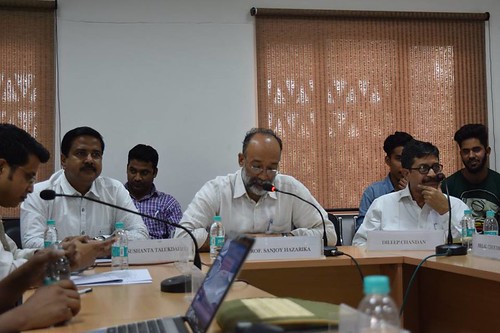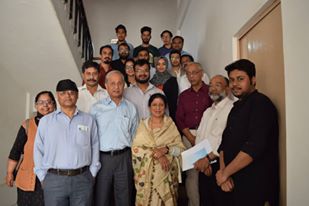By TCN News
New Delhi: Negative stereotypes related to the representation of the inhabitants of the char-chaporis of Assam in literature and media figured prominently at a day-long national seminar on Portrayal of the Char-Chaporis of the Brahmaputra in literature and Media’ held on March 3.
Organised by the Centre for North East Studies and Policy Research, Jamia Millia Islamia, the seminar drew senior journalists, writers and litterateurs, former officials, scholars, students and activists.
In his inaugural keynote address, former Union Tourism Secretary M P Bezbaruah described the “most serious problem” that char-chapori residents faced as “the blurring of identity with the illegal migrants” and that the new generation “found it to comprehend the differences between old settlers and illegal migrants.”

He urged a study of two major migrant groups–those of the char chaporis and the tea garden community–to three issues: understanding the process of assimilation with the socio-cultural ethos of the larger Assamese society, how each had woven its own distinctive traditions ‘to enrich the fabric of the wider society’ and how Assamese culture and literature has “looked upon them or neglected” them.
Papers on the portrayal of char-chapori people in literature and media were presented by a range of scholars and media figures including Professor Monirul Hussain of Gauhati University, award winning translator Dr. Malaya Khaund, Hafiz Ahmed of Char Chapori Sahitya Parishad, Dileep Chandan, editor, Asom Bani, as well as Sushanta Talukdar of NEZine and Ratnadip Choudhury of Deccan Herald.

At a panel discussion chaired by Professor Sanjoy Hazarika, the director of the center, more active participation of residents of the islands in traditional and new media was recommended as a way of cracking the stereotype. Senior journalists at the seminar pledged to train aspiring journalists from the chars in methodology and journalistic ethics.
A project of translating literature drawn from char writers was also proposed and a follow up seminar suggested for Guwahati later in the year.

